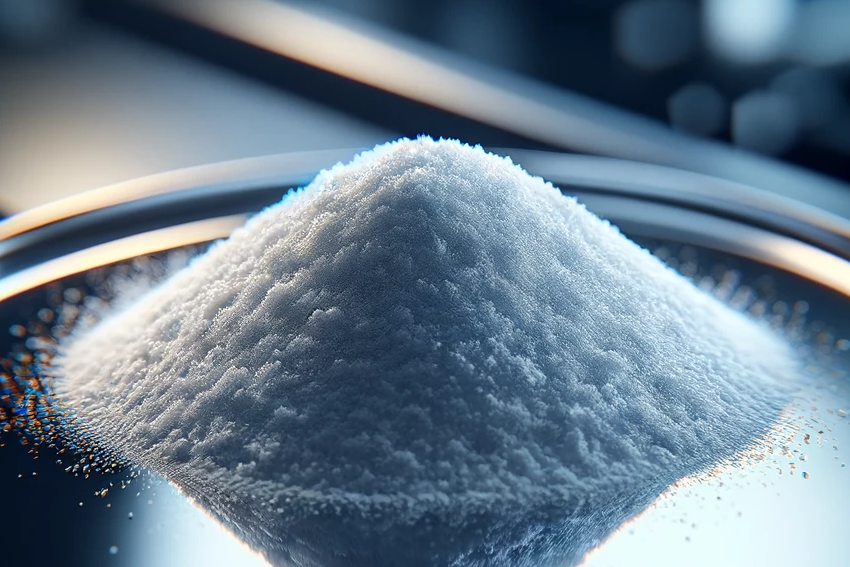Potassium gluconate

Potassium gluconate, a substance that often flies under the radar in veterinary medicine, deserves a closer look, especially when it comes to the health and nutrition of our dogs. This potassium salt of gluconic acid plays a crucial role in a variety of physiological processes, from maintaining electrolyte balance to supporting heart function. But what exactly is potassium gluconate, and why should it be included in your dog's diet? This article sheds light on the benefits and potential drawbacks of this important ingredient.
What is potassium gluconate?
Potassium gluconate is a white, crystalline powder that is often used in medicine to treat potassium deficiencies. It is a form of potassium that is easily absorbed by the body and is therefore often used in supplements for dogs to ensure they receive adequate amounts of this vital mineral.
The importance of potassium for dogs
Supporting heart health
Potassium is crucial for maintaining a normal heart rhythm. It helps to regulate the electrical balance in the heart cells, which is essential for healthy heart rate and function.
Electrolyte balance and fluid balance
As an electrolyte, potassium plays a key role in the body's fluid balance and electrolyte balance. It supports kidney function and helps to regulate blood pressure.
Muscle and nerve function
Potassium is also important for the normal functioning of muscles and nerves. It enables muscle contractions and the transmission of nerve impulses, which is essential for movement and coordination.
Advantages of potassium gluconate
- Optimal absorption: Potassium gluconate is well absorbed by the body due to its chemical structure, making it an efficient way to supplement potassium.
- Mild effect on the stomach: Compared to other potassium salts, potassium gluconate is less irritating to the stomach, making it a good choice for dogs with sensitive digestive systems.
- Supporting heart health: Supplementing with potassium gluconate can help reduce the risk of cardiac arrhythmias, especially in dogs prone to such problems.
Possible disadvantages and risks
- Overdose: An overdose of potassium can lead to hyperkalemia, a condition that can cause serious heart problems.
- Interactions with medications: Potassium gluconate may interact with certain medications, especially those that affect potassium levels in the body.
- Need for monitoring: Potassium supplementation requires careful monitoring, especially in dogs with kidney disease or heart problems.
Potassium gluconate can be a valuable addition to your dog's diet, especially when it comes to supporting heart health, electrolyte balance and overall muscle and nerve function. However, as with any supplement, careful dosing and monitoring is required to maximize benefits and minimize potential risks.
If you notice any signs of hypersensitivity or poisoning in your dog, you should see your vet immediately. We are not a substitute for a vet, but we try to be as accurate as possible. Every dog reacts differently and we recommend you get a second opinion or consult your vet if in doubt.
Stay healthy and take good care of your four-legged friend!😊
Similar to Potassium gluconate
Sodium gluconate is the sodium salt of gluconic acid, a mild organic acid obtained by the fermentation of glucose. It is known for its ability to bind metal ions and is used in industry as a...
Magnesium gluconate is formed when magnesium combines with gluconic acid. This form of magnesium is characterized by moderate bioavailability, which means that it can be easily absorbed and utilized...
Zinc gluconate is created when zinc, a vital mineral for numerous bodily functions, is combined with gluconic acid, a mild acid derived from glucose. This compound is particularly popular in the...
Ferrous gluconate is a form of iron that is used in many dietary supplements and fortified foods. It is a compound that is formed when iron reacts with gluconic acid. This particular form of iron is...



